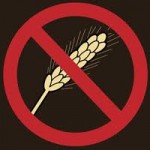 Women who have more than two alcoholic drinks a week -- particularly nonlight beer -- appear to be at increased risk of developing the skin condition psoriasis. The cohort study of almost 83,000 nurses -- over 1,000 of whom had cases of incident psoriasis -- found that among women who consumed 2.3 or more alcoholic drinks per week, the relative risk (the ratio of the risk of disease among those exposed to a risk factor to the risk among those not exposed, in this case a RR >1 indicates that there was a higher risk for psoriasis in the drinking group) for psoriasis was 1.72 according to Abrar A. Qureshi, MD, of Harvard University in Boston, and colleagues. Qureshi and co-authors reported their findings in the December Archives of Dermatology.
Women who have more than two alcoholic drinks a week -- particularly nonlight beer -- appear to be at increased risk of developing the skin condition psoriasis. The cohort study of almost 83,000 nurses -- over 1,000 of whom had cases of incident psoriasis -- found that among women who consumed 2.3 or more alcoholic drinks per week, the relative risk (the ratio of the risk of disease among those exposed to a risk factor to the risk among those not exposed, in this case a RR >1 indicates that there was a higher risk for psoriasis in the drinking group) for psoriasis was 1.72 according to Abrar A. Qureshi, MD, of Harvard University in Boston, and colleagues. Qureshi and co-authors reported their findings in the December Archives of Dermatology.
A few retrospective and case-control studies have suggested a possible link between alcohol use and psoriasis, particularly in men, the researchers noted. To see if women's risk of the autoimmune skin disease was associated with alcohol, Qureshi's group analyzed data from the longitudinal Nurses' Health Study II, which began enrolling women in 1989 and periodically questioned them about health and health behaviors.
In 2005, 82,869 participants responded to a questionnaire asking whether they had ever been given a diagnosis of psoriasis; 2,430 women reported that they had.Follow-up for the current analysis began in 1991, the first year for which there was information regarding alcohol intake. During the ensuing years, there were 1,069 incident cases of psoriasis, which were included in the current analysis.
The risk for psoriasis among women who used alcohol remained significant after adjustment for variables including age, body mass index, and physical activity. In addition, the risk for psoriasis increased with greater alcohol intake. The excess risk for psoriasis among women who drank five or more nonlight beers per week was 1.53%.
When the investigators repeated the analysis for those women whose diagnosis of psoriasis was confirmed using the detailed Psoriasis Screening Tool, the risk among those who consumed five or more nonlight beers was 2.3 times higher than nondrinkers. In contrast, there was no significant increase among women who drank other types of alcohol.
The investigators hypothesized that some component in beer -- specifically barley, which contains gluten -- may be responsible for the increased risk, and that more grain is used to manufacture full-strength beer.The link to gluten in beer was supported by the observation that some patients with psoriasis appear to be sensitive to gluten and improve on a gluten-free diet, they noted.
Limitations of the study included reliance on patient recall for a diagnosis of psoriasis, and that the cohort was well-educated and therefore not entirely representative of the entire cohort of women in the Nurses' Health Study.
Source: MedPage Today
 An estimated 3 million people in the United States have celiac disease. In people with celiac disease, foods that contain gluten trigger production of antibodies that attack and damage the lining of the small intestine. Such damage limits the ability of celiac disease patients to absorb nutrients and puts them at risk of other very serious health problems, including nutritional deficiencies, osteoporosis, growth retardation, infertility, miscarriages, short stature, and intestinal cancers.
An estimated 3 million people in the United States have celiac disease. In people with celiac disease, foods that contain gluten trigger production of antibodies that attack and damage the lining of the small intestine. Such damage limits the ability of celiac disease patients to absorb nutrients and puts them at risk of other very serious health problems, including nutritional deficiencies, osteoporosis, growth retardation, infertility, miscarriages, short stature, and intestinal cancers.
 Women who have more than two alcoholic drinks a week -- particularly nonlight beer -- appear to be at increased risk of developing the skin condition
Women who have more than two alcoholic drinks a week -- particularly nonlight beer -- appear to be at increased risk of developing the skin condition